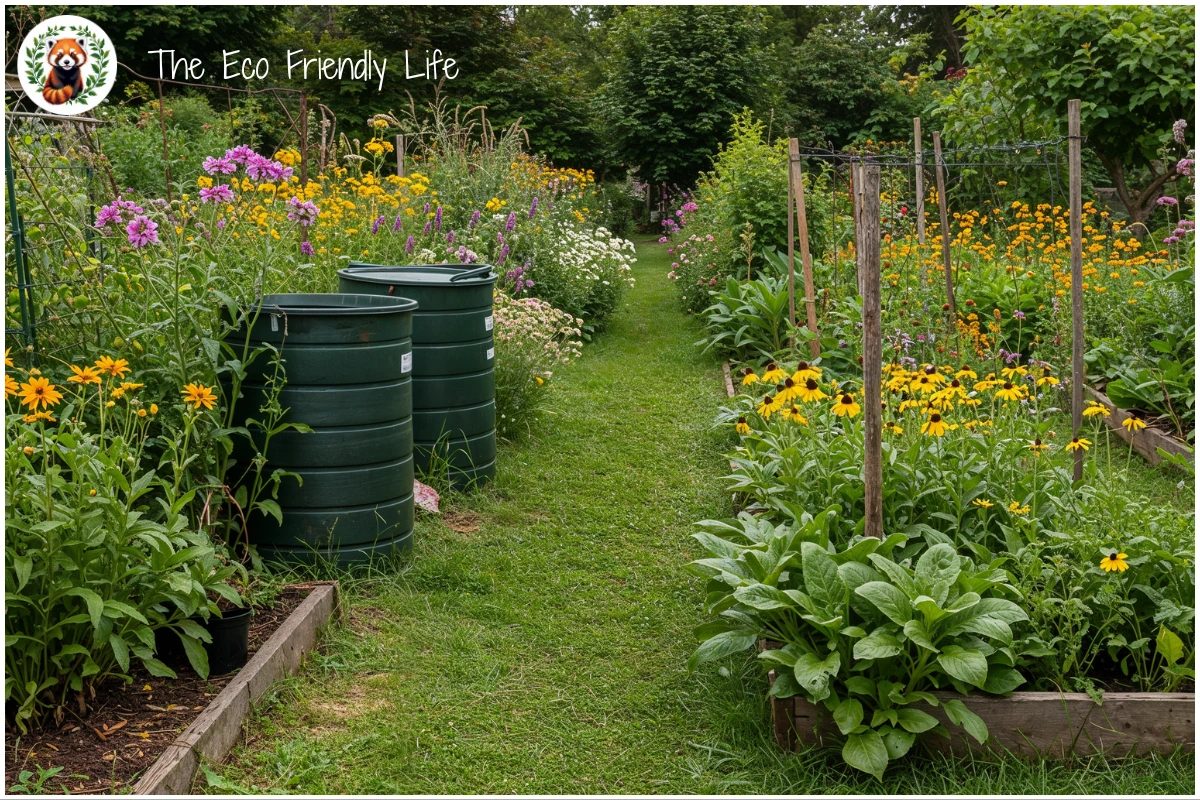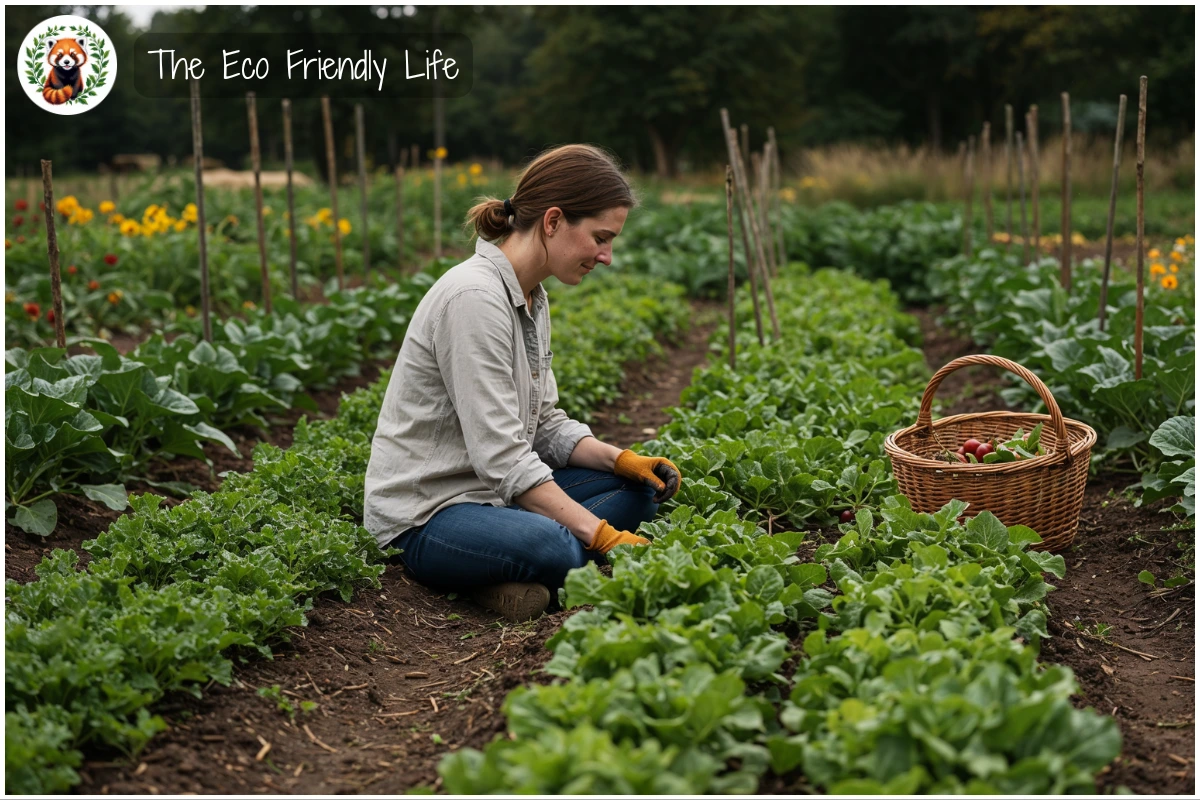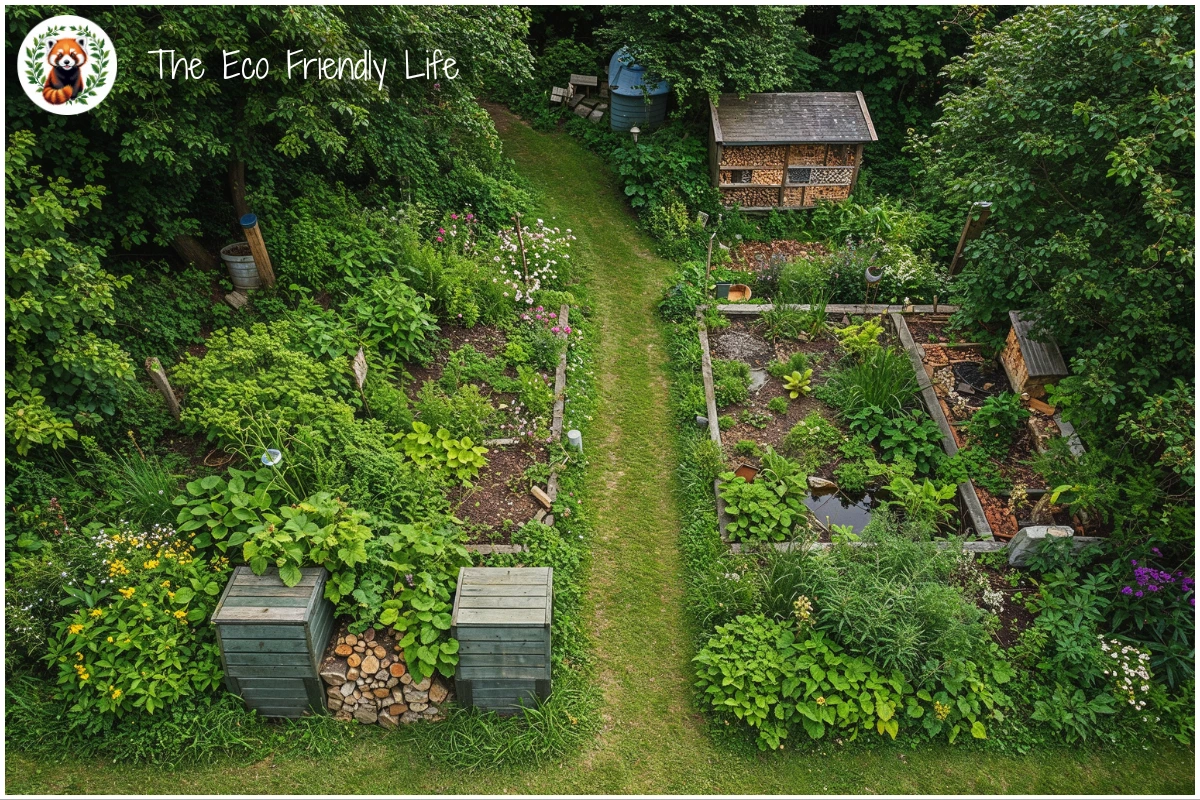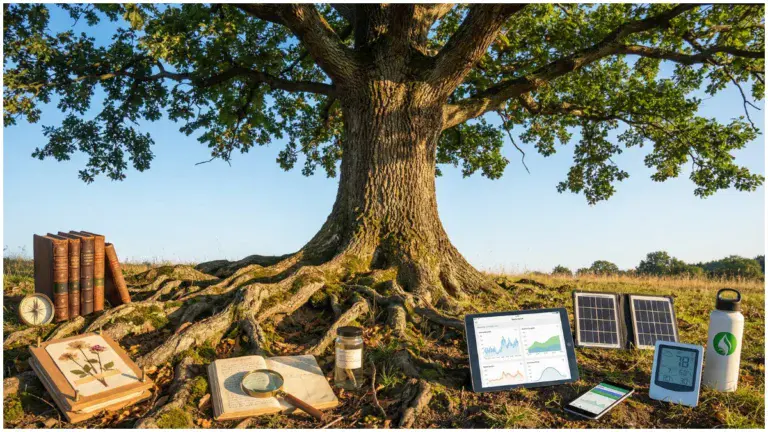Sustainable gardening represents one of the most accessible pathways toward environmental stewardship that individuals can embrace in their daily lives. Whether you cultivate a small balcony herb garden or tend acres of vegetables, understanding sustainable practices can transform your gardening experience while contributing to global environmental health. This comprehensive guide explores the principles, benefits, and practical applications of sustainable gardening that any enthusiast can implement, regardless of their gardening experience or available space.
I’m Al, and I’m excited to welcome you to this exploration of sustainable gardening. After years of witnessing the transformative power of environmentally conscious cultivation practices, I’ve become passionate about sharing knowledge that helps people connect with nature while making positive environmental impacts. Join me as we delve deep into the world of sustainable gardening, where every seed planted becomes a step toward a more resilient and healthier planet.
Understanding Sustainable Gardening Principles
Holistic ecosystem approach: Sustainable gardening recognizes your garden as a miniature ecosystem where every element—soil, plants, beneficial insects, and microorganisms—works together in harmony. This interconnected system mimics natural processes while producing food and beauty without depleting resources.
Resource conservation focus: The practice emphasizes maximizing efficiency while minimizing waste through careful water management, composting organic matter, and creating closed-loop systems that regenerate rather than extract from the environment. Smart irrigation techniques can reduce water usage by 34 percent compared to traditional methods.
Soil health priority: Sustainable gardeners understand that healthy soil forms the foundation of any thriving garden ecosystem, with soil microbes playing crucial roles in making nutrients available to plants and protecting them from environmental stresses.
Chemical-free practices: By avoiding synthetic fertilizers and pesticides, sustainable gardening maintains biodiversity while protecting beneficial insects, soil organisms, and water quality through integrated pest management approaches that work with natural systems.

With these foundational principles established, let’s explore how sustainable gardening practices create tangible benefits for both individual gardeners and their broader communities, starting with the remarkable health and wellness advantages that await those who embrace this approach.
The Health and Wellness Benefits of Garden Cultivation
Mental health improvements: Regular gardening activities significantly reduce stress levels, combat depression, and enhance overall psychological well-being, with participants experiencing measurable improvements in life satisfaction and sense of community connection. The therapeutic nature of working with soil and plants provides natural stress relief that many describe as meditative.
Physical activity enhancement: Gardening provides moderate-intensity exercise that improves cardiovascular health, builds muscle strength, and increases flexibility through activities like digging, planting, weeding, and harvesting. The physical demands of maintaining a garden offer an enjoyable alternative to traditional exercise routines.
Nutritional advantages: Home-grown produce contains superior nutritional content compared to commercially grown alternatives while eliminating exposure to synthetic pesticide residues. Fresh vegetables and herbs harvested at peak ripeness deliver maximum vitamins, minerals, and antioxidants directly to your table.
Connection with nature: Gardening creates meaningful opportunities for nature connection that urban dwellers often lack, fostering environmental awareness and appreciation for natural cycles. This connection becomes particularly valuable during challenging periods, as demonstrated during the COVID-19 pandemic when gardens provided essential outdoor spaces for physical activity and stress relief.

Beyond personal wellness, sustainable gardening practices create profound environmental benefits that extend far beyond individual garden boundaries, contributing to broader ecosystem health and climate resilience efforts worldwide.
Environmental Impact and Climate Benefits
Carbon sequestration potential: Gardens actively remove carbon dioxide from the atmosphere through plant photosynthesis and soil carbon storage, with compost applications creating significant opportunities for long-term carbon sequestration in soil. Home gardens can store substantial amounts of carbon while supporting climate change mitigation efforts.
Biodiversity conservation: Sustainable gardens create crucial habitat corridors for native species, supporting beneficial insects, birds, and other wildlife that face pressure from urban development. Even small garden spaces contribute to maintaining regional biodiversity by providing food sources, nesting sites, and migration pathways for various species.
Water cycle protection: Through mulching, composting, and efficient irrigation practices, sustainable gardens improve water infiltration, reduce erosion, and prevent nutrient runoff that pollutes waterways. These practices create natural water management systems that protect local watersheds.
Waste reduction impact: Home composting diverts organic waste from landfills while creating valuable soil amendments, with composting initiatives potentially reducing carbon emissions by millions of tons annually. This circular approach transforms kitchen scraps and yard waste into garden gold that enriches soil naturally.

Understanding these environmental benefits naturally leads to exploring reputable retailers who share these values and provide the tools, supplies, and expertise needed to implement sustainable gardening practices effectively in your own space.
Retailers That Support the Planet – Our Product Recommendations
These environmentally conscious retailers offer products and expertise that support sustainable gardening practices while maintaining strong commitments to ecological responsibility and customer education.
Our Retailer Recommendation for Adults
ARBICO Organics – Professional Biological Pest Control Solutions
ARBICO Organics specializes in providing beneficial insects, organic pest control products, and sustainable gardening supplies for professional growers and home gardeners alike. Their comprehensive approach to integrated pest management offers effective alternatives to synthetic chemicals while supporting beneficial insect populations and soil health.
Our Retailer Recommendation for Kids/Families
Eartheasy – Complete Sustainable Living Solutions
Eartheasy provides eco-friendly gardening products, raised garden beds, composting systems, and comprehensive educational resources for families beginning their sustainable gardening journey. Their family-owned business combines practical products with extensive guidance, making sustainable gardening accessible to gardeners of all experience levels while supporting environmental restoration through tree planting partnerships.
Now that we’ve explored the foundational principles and identified reliable sources for sustainable gardening supplies, it’s time to examine the practical implementation strategies that will help you successfully translate these concepts into thriving, environmentally beneficial garden spaces.
Practical Implementation and Seasonal Planning
Soil preparation strategies: Building healthy soil requires incorporating organic matter through compost, aged manure, and cover crops while avoiding chemical inputs that disrupt beneficial microbial communities. Regular soil testing helps gardeners understand nutrient needs and pH levels without guesswork.
Plant selection principles: Choosing plants adapted to local climate conditions reduces water requirements, pest pressures, and maintenance needs while supporting indigenous biodiversity. Native species and climate-appropriate varieties thrive with minimal intervention once established.
Water conservation techniques: Implementing drip irrigation systems, mulching, and rainwater collection can reduce garden water usage significantly while maintaining plant health. Strategic timing of irrigation and selecting drought-tolerant species further optimize water efficiency.
Seasonal planning approach: Successful sustainable gardens require year-round planning that includes crop rotation, companion planting, succession planting, and preparation for seasonal transitions. Understanding local growing seasons and frost dates enables gardeners to maximize productivity while working with natural rhythms.
With these implementation strategies providing the framework for your sustainable garden development, let’s examine specific daily actions you can take immediately to begin creating positive environmental impact while building gardening skills and confidence.
Practical Daily Tips You Can Action Today
Simple sustainable gardening practices that anyone can implement immediately to create positive environmental impact while improving garden health and productivity.
| Tip | Implementation | Environmental Benefit |
|---|---|---|
| Start composting kitchen scraps | Set up a simple bin for vegetable peels, coffee grounds, and plant materials | Reduces landfill waste while creating nutrient-rich soil amendment |
| Collect rainwater in containers | Place buckets or barrels under downspouts and roof edges | Conserves municipal water while providing plants with natural irrigation |
| Plant native flowers for pollinators | Select local wildflower species suited to your climate zone | Supports declining bee and butterfly populations essential for food production |
| Mulch garden beds with organic materials | Apply leaves, straw, or wood chips around plants | Retains soil moisture, suppresses weeds, and builds soil as materials decompose |
| Practice companion planting | Grow herbs like basil near tomatoes or marigolds throughout the garden | Naturally deters pests while maximizing space and improving plant health |
| Create a no-dig garden bed | Layer cardboard, compost, and organic matter directly over grass | Preserves soil structure and beneficial organisms while eliminating tilling |
| Save seeds from healthy plants | Allow best-performing plants to mature and collect their seeds | Develops locally adapted varieties while reducing dependence on purchased seeds |
| Install simple drip irrigation | Use soaker hoses or plastic bottles with holes for targeted watering | Delivers water directly to roots, reducing waste and preventing fungal diseases |
| Encourage beneficial insects | Provide shallow water dishes and leave some garden areas undisturbed | Creates habitat for natural pest predators and pollinators |
| Rotate crop locations annually | Move plant families to different garden areas each season | Prevents soil depletion and breaks pest and disease cycles naturally |
With these practical tips providing immediate actions you can take, you may have questions about implementing sustainable gardening practices effectively, so let’s address the most common concerns that new sustainable gardeners typically encounter.
FAQs
Common questions about sustainable gardening practices that help new practitioners understand basic concepts and overcome initial obstacles.
Can sustainable gardening produce as much food as conventional methods? Sustainable gardens often produce higher yields per square foot due to improved soil health, companion planting, and intensive management techniques that maximize space utilization.
How long does it take to see results from sustainable practices? Most gardeners notice improvements in soil quality and plant health within one growing season, while significant changes in soil ecosystem development typically occur over 2-3 years.
Do sustainable gardens require more work than conventional gardens? Initial setup requires more planning, but mature sustainable gardens often require less maintenance due to improved soil health, natural pest control, and efficient water management systems.
What’s the most important first step for beginners? Starting composting and improving soil health provides the foundation for all other sustainable practices while creating immediate benefits for both plants and the environment.
Organizations to Support – Our Recommendations
These organizations advance sustainable agriculture and environmental protection through research, education, and practical programs that support gardeners worldwide.
- World Wildlife Fund focuses on protecting biodiversity and promoting sustainable agriculture practices that support both wildlife conservation and human food security. Their programs help implement sustainable farming techniques that protect critical ecosystems while supporting local communities through wildlife protection initiatives.
- Rodale Institute conducts pioneering research in organic agriculture and regenerative farming while providing education and resources for sustainable growing practices. Their work demonstrates how organic methods can improve soil health, increase yields, and combat climate change through organic agriculture research.
- International Union for Conservation of Nature works globally to protect biodiversity and promote sustainable resource management through science-based conservation strategies. Their programs support ecosystem restoration and sustainable agriculture practices that benefit both environmental and human health through biodiversity conservation efforts.
Supporting these organizations amplifies individual gardening efforts by contributing to systemic changes that address global environmental challenges while advancing sustainable agriculture practices worldwide.
Resources and Further Reading
Essential sources for deepening understanding of sustainable gardening principles and accessing expert guidance for advanced practices.
- Food and Agriculture Organization (FAO) provides comprehensive resources on sustainable agriculture, soil health, and climate-smart farming practices through their extensive database of research and practical guidance. Access their materials for evidence-based sustainable farming information at FAO Sustainable Agriculture.
- National Center for Appropriate Technology offers detailed guides on organic gardening, composting, and sustainable farming techniques specifically designed for small-scale practitioners and home gardeners. Find practical implementation resources through their sustainable agriculture publications.
- Sustainable Agriculture Research and Education Program provides research-based information on sustainable farming practices, soil health improvement, and integrated pest management for both commercial and home-scale applications. Explore their educational resources at SARE Sustainable Agriculture.
These resources provide scientifically-based information and practical guidance for gardeners seeking to deepen their sustainable practices while staying current with evolving best practices and innovations.
Our Related Articles

History And Evolution Of Environmental Education
Environmental education didn’t appear overnight—it evolved through decades of growing awareness, global collaboration, and shifting priorities about our relationship with the natural world. From early…
Read More
Minimalism 101: Why Less Is More
The modern world bombards us with messages to buy more, own more, and do more. But what if the path to greater happiness, financial security,…
Read MoreConclusion
Sustainable gardening offers a powerful pathway for individuals to create positive environmental impact while enjoying the numerous personal benefits of cultivating plants. From improving soil health and supporting biodiversity to reducing waste and conserving water, these practices demonstrate how small-scale actions contribute to addressing global environmental challenges. The integration of composting, water conservation, organic pest management, and native plant selection creates resilient garden ecosystems that provide food, beauty, and habitat while requiring fewer external inputs over time.
The journey toward sustainable gardening begins with simple steps like composting kitchen scraps, collecting rainwater, and choosing climate-appropriate plants. These foundational practices gradually build expertise and confidence while creating tangible benefits for both gardeners and the environment. As individual gardens adopt sustainable practices, they collectively form networks of green spaces that support wildlife, improve air and water quality, and contribute to climate change mitigation efforts.
What sustainable gardening practice will you implement first in your growing space, and how do you envision your garden contributing to environmental health in your community? Share your thoughts and experiences in the comments below as we build a community of environmentally conscious gardeners working together toward a more sustainable future.


